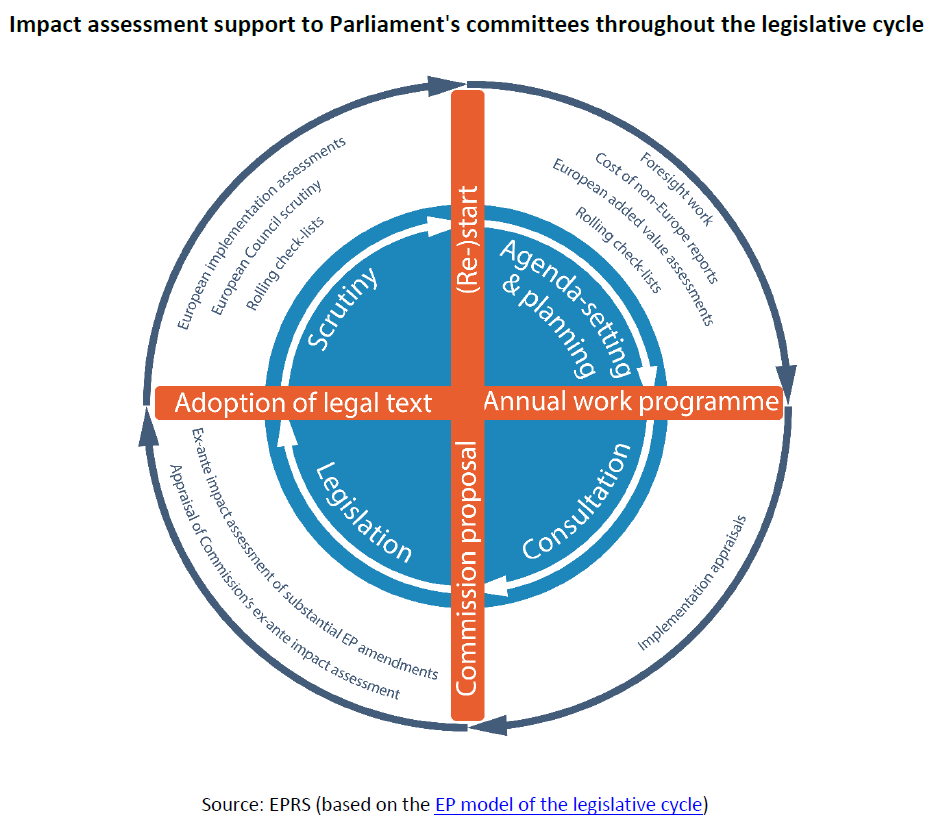Written by Irmgard Anglmayer,

European Parliament has its own ex-post impact assessment tool at its disposal, in the form of so-called implementation reports. This specific type of own-initiative report, provided for in Parliament’s Rules of Procedure (Annex XVII, Article 1, indent 1(e)), allows parliamentary committees to scrutinise how EU legislation, soft law instruments and international agreements have been transposed into national law, implemented and enforced. Once adopted in plenary, implementation reports become Parliament’s position on the performance of a legal act (or other intervention). Thus, they are a strong and visible evaluation tool. The Commission is bound to inform Parliament of action taken in response to specific requests addressed to it in Parliament’s resolutions; there is, however, no obligation for a positive follow-up.
To strengthen this specific type of own-initiative report and to foster its efficiency and use, the rules guiding implementation reports have recently undergone a reform. These reports are now split into two parts:
- an explanatory statement providing factual evidence, and
- a motion for resolution containing specific political recommendations; this is the part to be put to the vote in committee, within 12 months following the authorization to draw up the report, and subsequently in plenary.
Rapporteurs of implementation reports have the backing of Parliament’s President to request disclosure of relevant information from the Commission. If deemed appropriate, they can also request factual information from national parliaments or EU bodies. Moreover, they are entitled to obtain expertise from Parliament’s research facilities, notably the policy departments and the relevant unit in the Directorate General for Parliamentary Research Services (EPRS).
EPRS supports implementation reports by providing background analysis, in the form of ‘European Implementation Assessments’. These are in principle drafted in-house, based on desk research and surveys. In justified cases, they may also be outsourced, in full or in part, to external experts. Compared to the Commission’s fully-fledged evaluations, which can be very technical and easily comprise hundreds of pages, and which can take up to 18 months (or more) from design to delivery, Parliament’s ‘European Implementation Assessments’ are tailored to parliamentarians’ needs, with a focus on ease of use. Recent topics include the review of the EU copyright framework, the Employment Equality Directive, the UN Convention on the Rights of Persons with Disabilities, and food contact materials.
Read the complete briefing on ‘Evaluation and ex-post impact assessment at EU level‘.









Be the first to write a comment.